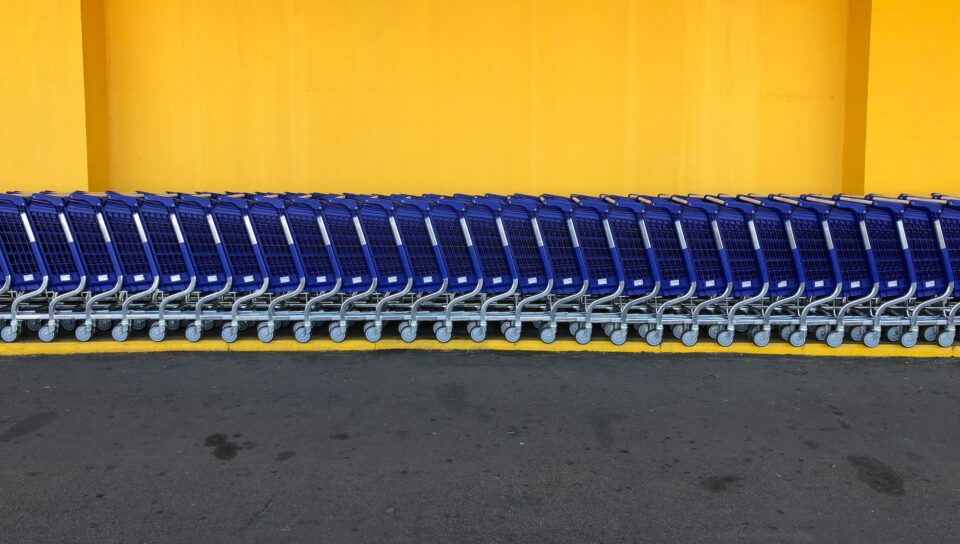In line with the development of e-commerce, the regulation of e-commerce is also increasing. For example, during 2016 the EU introduced an alternative dispute resolution for consumers. In addition to this, the EU has also proposed a prohibition against blocking certain customers from its e-commerce platform.
ODR – ALTERNATIVE DISPUTE RESOLUTION
An example of a new regulation within the e-commerce area is Online Dispute Resolution (“ODR”), which intends to ensure that all consumers have the opportunity of a dispute resolution through an alternative dispute resolution, in other words, a dispute resolution outside a general court. ODR entails an EU regulation applicable to e-commerce disputes between consumers and e-traders and a platform for such disputes, developed by the European Commission. The objective set by the European Commission is a high level of consumer protection in order to contribute to a well-functioning single market, particularly in terms of the digital market. A part of this objective has been to enable an independent, open, efficient, fast and fair resolution of disputes between consumers and e-traders outside courts. In Sweden the National Board for Consumer Disputes (“ARN”) is the body appointed for ODR for e-commerce.
Given the implementation of ODR, requirements are also imposed on e-traders, established within the EU, to link to ODR on their website. If an e-trader has also undertaken to use alternative dispute resolution, e.g. by being a member of a certain trade or business organisation, the requirements for information are more comprehensive. For example, the e-trader may then be required to inform consumers about the alternative dispute resolution in both newsletters and general terms and conditions.
PROHIBITION AGAINST GEO-BLOCKING
In addition to ODR, on 28 November 2016 the Council of the European Union developed a proposal for a regulation on prohibition against geo-blocking. Geo-blocking entails that e-traders block or restrict customers from accessing and purchasing products or services from a website based in another country. It is stated that the purpose of the proposed rules on prohibiting geo-blocking is to combat discrimination based on the customers’ geographical origin. It is hoped that the prohibition will contribute to a well-functioning single market and an increase in e-commerce by EU citizens having access to a wider range of goods and services.
Thus, the proposal entails that e-traders established within the EU may not block customers in another EU country from visiting or purchasing products from the e-trader’s website. On the other hand this does not entail that e-traders must actively market or sell their products in all EU countries. Neither are e-traders liable to offer delivery to all countries within the EU. The customers who order goods from a country in which the e-trader does not offer delivery are instead responsible for the delivery themselves. On the other hand different payment conditions may not be applied depending on the customers’ geographical origin.
A highly relevant issue to consider is whether this is the end of exclusive distribution channels through e-commerce. Does the prohibition against geo-blocking entail that all distributors of a product may freely (or rather must) sell and market their products in all EU countries? No, as mentioned, the prohibition against geo-blocking does not entail that an e-trader must actively market or sell its products in all EU countries. Exclusive distribution agreements which contain prohibitions against active sale outside the geographical areas covered by the agreement are thus not impacted, at least not in theory. The proposal also explicitly states that the prohibition does not apply when e-traders are bound by agreements with their suppliers which entail a prohibition against passive sale outside a certain area (in the exceptional cases where on the whole prohibition against passive sale pursuant to the EU’s competition rules is permitted).
Another important exception from the prohibition is that it does not cover e-traders who offer services in the form of access to or use of material protected by copyright, for example, films or music, or who sell, for example, books and music available online, such as e-books.
WHAT DOES THIS MEAN FOR THE E-TRADERS?
A prohibition against geo-blocking can naturally result in several new challenges for e-traders. Small e-traders have expressed concern about what will happen to them when they will need to open up their online stores to all of the EU with the legal requirements this may entail. However, at the same time this naturally also entails major opportunities. The e-traders who are out early and adapt their operations to a wider market can get their products out to a completely different clientele than would otherwise be the case and can also create better deals. The ODR system can also be highly beneficial for e-traders. This is because it will allow quicker detection of unreliable e-traders, which is positive in practice as these unreliable players tend to give an entire industry, in this case the e-commerce industry, a bad reputation and because it will allow faster dispute resolution and reduce costs for both customers and e-traders. Therefore, there is all reason to view the new regulations that have already been introduced and which will probably be implemented in the e-commerce area as opportunities rather than obstacles.
WOULD YOU LIKE MORE INFORMATION?
PLEASE FEEL FREE TO CONTACT US AT MORRIS LAW
CAROLINE YGGE
Partner, Advokat
Telephone: +46 10 722 36 10
Mobile: +46 738 26 47 70
E-mail: caroline.ygge@morrislaw.se
KARIN ODKRANS
Associate
Telephone: +46 10 722 36 21
Mobile: +46 708 83 73 46
E-mail: karin.odkrans@morrislaw.se


